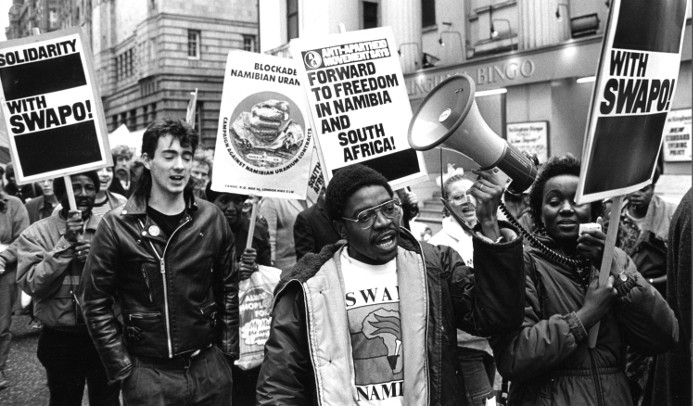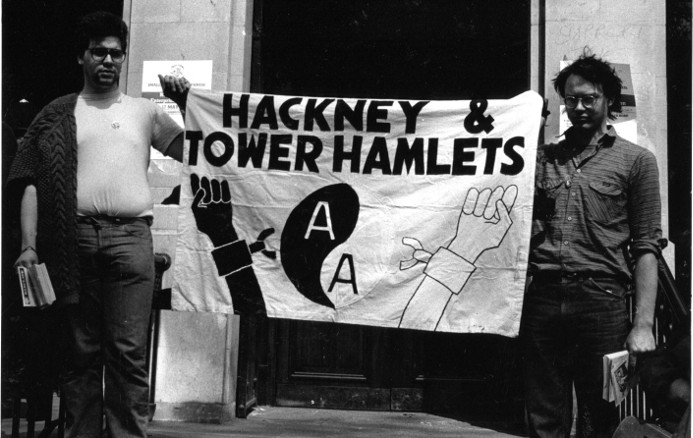BOYCOTTING APARTHEID
The Anti-Apartheid Movement’s local groups gave it a presence all over Britain. Some groups had hundreds of members and links to trade unions, churches and community organisations. Others were kept going by a few dedicated activists.
Anti-apartheid groups campaigned to end British links with South Africa within their local communities. They asked shoppers to boycott South African goods and pressed local branches of supermarket chains like Tesco and Sainsbury’s to stop selling them. They handed out leaflets outside Barclays Bank and Shell petrol stations explaining how the companies supported apartheid.
LOCAL CAMPAIGNS
Britain’s long colonial history meant that many places had special links with Southern Africa. In Stratford local activists joined with actors from the Royal Shakespeare Company to protest at the South African ambassador’s presence at celebrations of Shakespeare’s birthday. In Coventry and Oxford AA groups campaigned with trade unionists at British Leyland plants for trade union rights for black workers at Leyland’s South African factories.
ARTS FESTIVALS
Local activists joined weeks of action on Namibia and collected material aid for the South West Africa People’s Organisation (SWAPO) and the Solomon Mahlangu Freedom College. They campaigned for the release of Nelson Mandela and all Southern African political prisoners. They held arts festivals and concerts to showcase the rich cultural heritage of the peoples of Southern Africa. Many AA groups joined in local anti-racist campaigns.
SCOTLAND AND WALES
In Scotland and Wales anti-apartheid groups set up their own co-ordinating committees within the British AAM. As the network of anti-apartheid groups spread, new regional committees co-ordinated local campaigns.
There was no email or internet, so local AA groups produced printed newsletters for their supporters and distributed hundreds of thousands of leaflets. You can read some of these on this website.
The local groups were important, as a means of replicating at local level the campaigns we were trying to promote nationally... Some of them might well have done their own thing. There was no obligation on them to necessarily follow the template set down by London. You know, some of them might have said: 'Right, well given the nature of our area's local links with South Africa, we're really going to go after this, and we're gonna put other things London might want us to do onto a back burner'.
Chris Child AAM Trade Union Officer
 Manchester AA Group supporters marched through the city centre to demand sanctions against South Africa on 8 November 1986. Copyright © Paul Herrmann
Manchester AA Group supporters marched through the city centre to demand sanctions against South Africa on 8 November 1986. Copyright © Paul Herrmann

